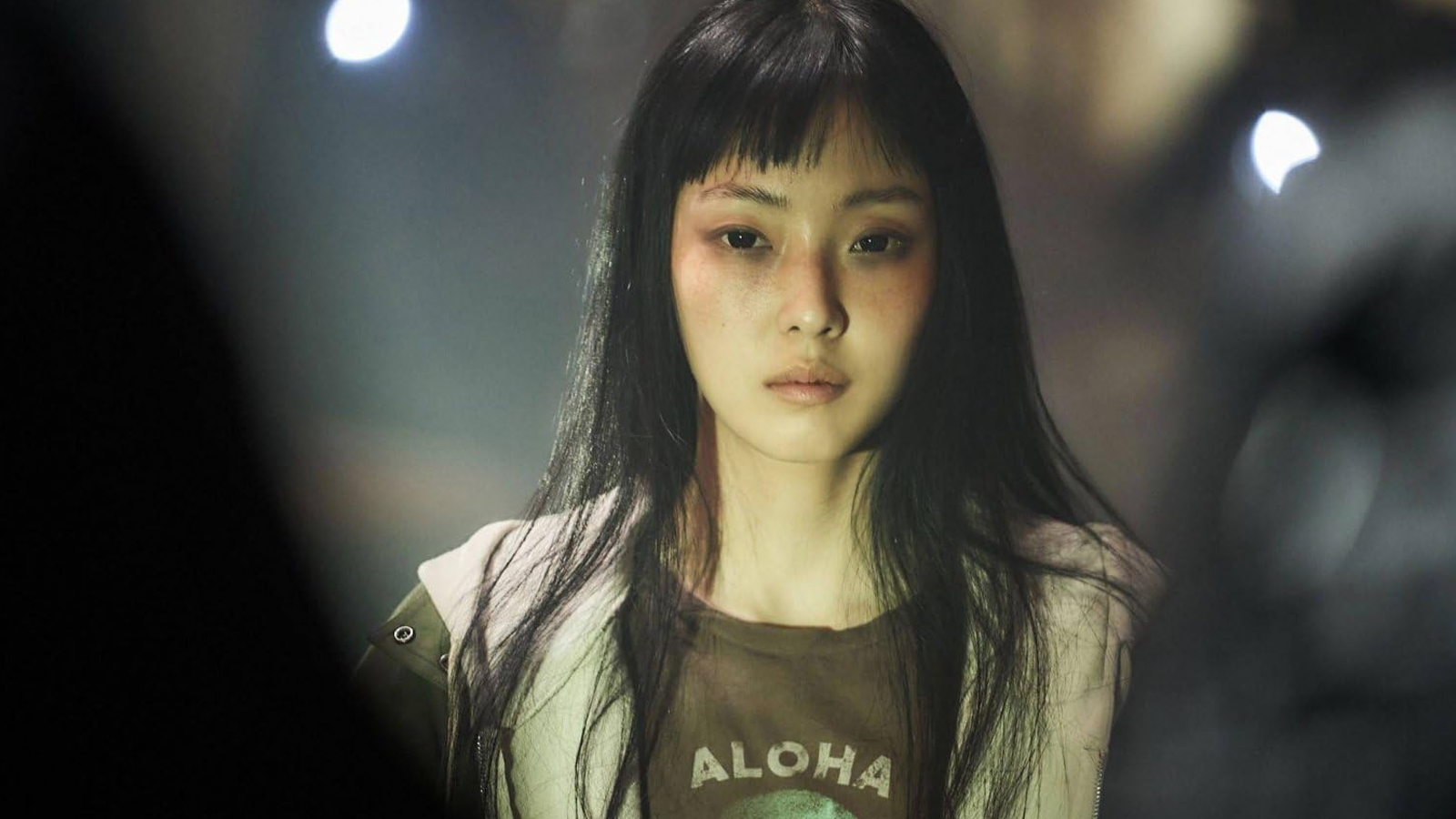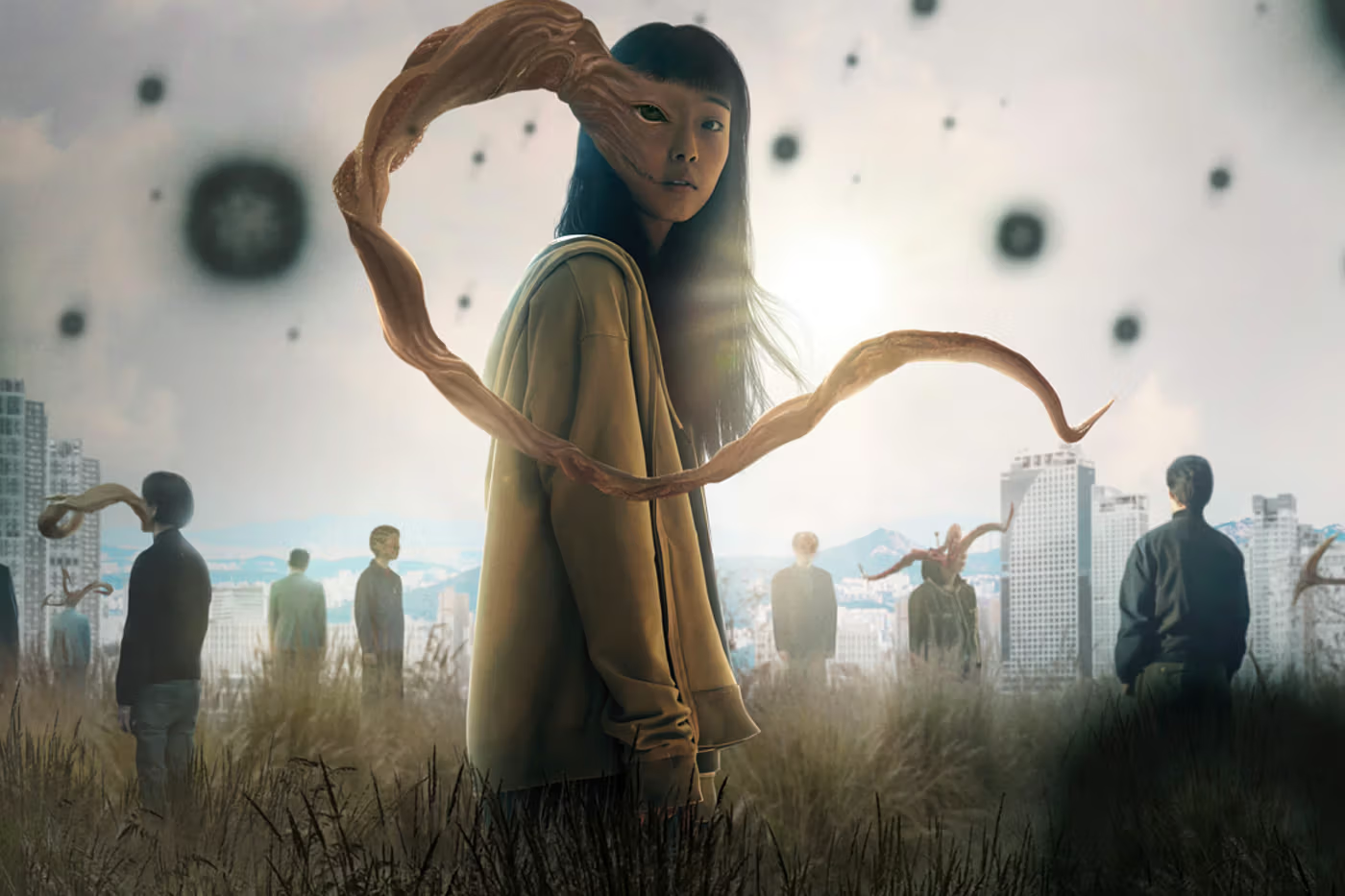Netflix’s latest Korean thriller, “Parasyte: The Grey”, brings a chilling new perspective to the beloved manga and anime series. This dark twist on the alien parasite trope sees a world where the invaders form a tense coexistence with their human hosts, blurring the lines between predator and prey. The series excels with thought-provoking moral dilemmas and suspenseful storytelling but falls short in fully exploring its potential.

Parasyte: The Grey
A New Kind of Invasion
Unlike the instantly violent parasites of the original “Parasyte”, those in “The Grey” seek cohabitation. They surgically attach themselves to their hosts’ brains, gaining control over the body while their human counterparts retain some agency. This creates a fascinating struggle for dominance within a single being – human versus parasite.
Jeong Su-in, played by Jeon So-nee, becomes the focal point of this battle. After a failed parasite takeover, she forms an uneasy alliance with the creature in her head in order to survive. Her transformation from unassuming detective to hardened survivor is captivating, showcasing Jeon’s impressive range.
The Morality of Coexistence
“Parasyte: The Grey” isn’t simply an action-horror spectacle. It raises compelling questions about identity, survival, and the price of peace. The series explores how humans might adjust to coexisting with a sentient threat, with some accepting and exploiting the situation, while others fight against it. The parasites themselves grapple with their predatory nature and the desire to create a sustainable future. This morally complex narrative will keep you pondering long after the credits roll.
Action, Suspense, and a Touch of Body Horror
While not as intensely gruesome as its source material, “The Grey” still delivers on the thrills. Fans of body horror will appreciate the grotesque parasite transformations and visceral fight scenes. The series maintains a steady pace with suspenseful encounters, political intrigue, and the constant question of who is truly in control of each character.
Where It Falls Short
“Parasyte: The Grey” stumbles in fully fleshing out its ambitious concepts. Some plot points feel rushed, while certain secondary characters remain underdeveloped. Additionally, compared to the iconic manga and anime, the series’ visual effects lack the same visceral impact, making the parasites less unsettling than they could be.
Hitting the Mark vs. Anime Adaptation Woes
While acknowledging missteps, many praise the series’ strong lead performances, intriguing ethical dilemmas, and its ability to capture the essence of the source material. It stands out as a successful Korean adaptation, avoiding the pitfalls that often plague translated properties.
However, some die-hard anime fans note that the changes diminish the raw terror and social commentary that made the original so impactful. Those expecting a faithful retelling might be disappointed by the altered tone and focus.
Is “The Grey” Worth Your Time?
If you’re looking for a thought-provoking thriller with a sci-fi twist, “Parasyte: The Grey” will keep you gripped. Jeon So-nee’s performance is a standout, and the series’ exploration of compromise and survival raises fascinating questions. Even with its flaws, it offers a unique and engaging perspective on the parasite genre.
However, if you’re seeking a horror-forward adaptation or a carbon copy of the anime, “The Grey” might underwhelm.




